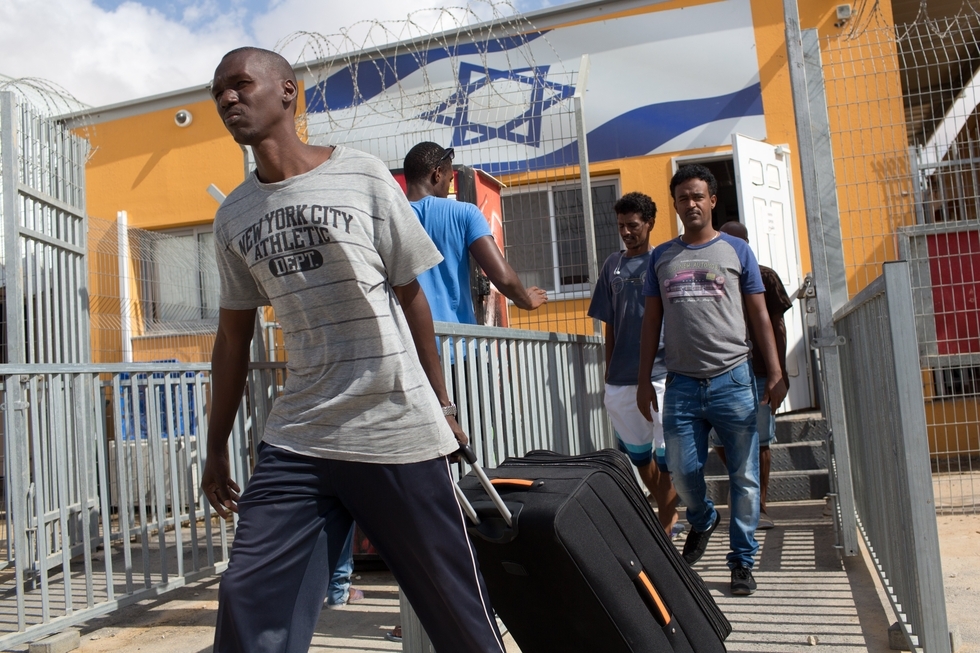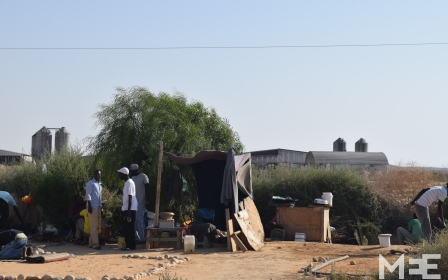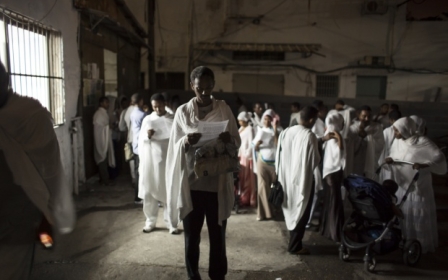WATCH: Holot, Israel's giant detention centre for African asylum seekers

In an isolated stretch of Negev desert in southern Israel, thousands of African asylum seekers are confined in Holot detention centre.
In this video, Middle East Eye gives a rare insight into the conditions inside the detention centre, through the stories of the African asylum seekers trying to hold onto hope against the odds in Holot.
One of the world’s largest detention facilities, Holot is where the government sends Africans, often from Eritrea and Sudan, who have claimed asylum in the country.
Conditions in the camp for “infiltrators”, as the state labels them, have been widely criticised by human rights groups. Israeli Supreme Court Justice Uzi Vogelman has labelled the camp “wretched”.
Holot and neighbouring Saharonmin prison were built in 2012 to collectively hold around 10,000 inmates. The number of inmates in Holot has reportedly reached an all-time high, and it remains open despite a 2014 court order that the centre be closed.
Approximately 3,500 Eritrean and Sudanese nationals are currently being held there for fixed periods of a year while asylum claims are reviewed. Only a tiny fraction – between 0.25 to 1 percent – of these efforts are ever successful and the claimants allowed to stay in Israel.
Amnesty International says that the authorities have pressured many claimants to leave Israel "voluntarily" under a process that offers payment in return for withdrawing asylum claims, as well as a paid trip to home countries or onwards travel to third countries.
Many accept that, “despite fears that they faced persecution or torture in the countries from which they had fled,” Amnesty said in an in-depth report into the treatment of asylum seekers released last year.
According to the report, more than 5,000 Eritrean and Sudanese nationals accepted "voluntary return" in the first 10 months of 2015, some leaving after facing imminent risk of detention.
New MEE newsletter: Jerusalem Dispatch
Sign up to get the latest insights and analysis on Israel-Palestine, alongside Turkey Unpacked and other MEE newsletters
Middle East Eye delivers independent and unrivalled coverage and analysis of the Middle East, North Africa and beyond. To learn more about republishing this content and the associated fees, please fill out this form. More about MEE can be found here.




